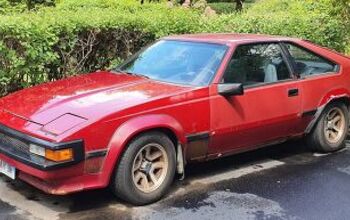Borrowing Binge: Auto Loan Debt Hits a Record High

With memories of the 2008 financial meltdown still fresh, American consumers aren’t borrowing wildly anymore — except when it comes to cars and credit card purchases.
As of the end of June, car buyers racked up the highest auto loan debt in U.S. history — $1.1 trillion, according to a quarterly report from the Federal Reserve Bank of New York. Also on the rise? Credit risk.
The second quarter rise in vehicle loans was enough to slightly boost household debt levels, despite a decline in mortgage debt and — for the first time — a reduction in student loan debt. A hunger for new vehicles fueled a multi-year U.S. car-buying spree, so a spike in borrowing isn’t unexpected. Still, there’s risk in those numbers.
Depending on what predictions you listen to, new vehicles sales could soon decline, or hit a plateau. (Recent sales figures seem to show the market flattening-out.) Still, year-over-year sales growth in the past several years was massive. Low lending rates helped spur that growth, with auto loan rates now nearing record lows.
In the second quarter of this year, car buyers added $32 billion (three percent) to the auto loan debt pile. That tally is $97 billion higher than a year ago, enough to spook regulators.
Last month, the Office of the Comptroller of the Currency, which oversees the large banks, issued a warning. Credit risk is on the rise in the auto lending sector, it said in a report, a problem made worse by indirect loans accessed through dealers. Competition between banks could boost the risk further.
The report stated that “because of notable and unprecedented growth” across all types of lenders, “some banks have responded with less stringent underwriting standards.”
It’s not a new message. Last October, the OCC’s Thomas Curry said that some activity in the auto loan sector “reminds me of what happened in mortgage-backed securities in the run-up to the crisis,” according to the Wall Street Journal.
Needless worry, or premonition of another credit bubble? Time will tell. In the mean time, don’t worry, and enjoy the new car. They cost a lot of money.

More by Steph Willems
Latest Car Reviews
Read moreLatest Product Reviews
Read moreRecent Comments
- EBFlex Insatiable demand for EVs yet this happens. And a lot more layoffs at Tesla.
- SCE to AUX Maybe some Apple tech would be helpful, but please no self-driving stuff.
- SCE to AUX It's over, and over the last decade or so Henrik Fisker has left two eras of foolish customers driving paper weights.
- Kwik_Shift_Pro4X Always a good sign. 🤕 I would like to see their pitch on Shark's Tank/Dragon's Den
- Buickman I was called crazy after predicting the sale of GMAC.#canthurtme

































Comments
Join the conversation
By and large your typical American is a debt slave. Credit/debt should never be used to buy ANY non-essential good...i.e. large TVs, expensive cars, WORTHLESS college degrees, etc. Half of my family are debt slaves. I have a family member who makes six figures who financed a COUCH because they live paycheck to paycheck. I have another family member whose combined income is $250k who has all the toys you can imagine but couldn't afford to put a new roof on his house so he lost sleep worrying about how he was going to pay to fix the leaks. It's quite amusing to watch - being a weirdo who has 0 debt, buys things in cash and eats PB&J for lunch. I'm not a holier than thou type and I never lecture my family on how to spend their own money - I say live and let live. I prefer peace of mind and not having to excessively worry about money to having the latest and greatest. Just don't come crying to me or seize my retirement savings because you were too reckless to use your brain. The discipline it takes to live below your means requires foresight and putting aside your ego.
A lot of this auto loan debt is that there is a voracious demand for ABS: asset backed securities. The loans are sold to Wall Street to securitize and sell to institutional investors, pension funds, mutual funds and public retirement schemes. Just like MBS: mortgage backed securities which brought us the Great Meltdown of 2008. A lot of these loans are "generate to sell". They don't give a frig who gets a loan so long as there's money to be made in bundling them with a bunch of other loans and when they go bad someone else is holding the bag. Watch this sector. I really believe it's an indicator of trouble ahead.